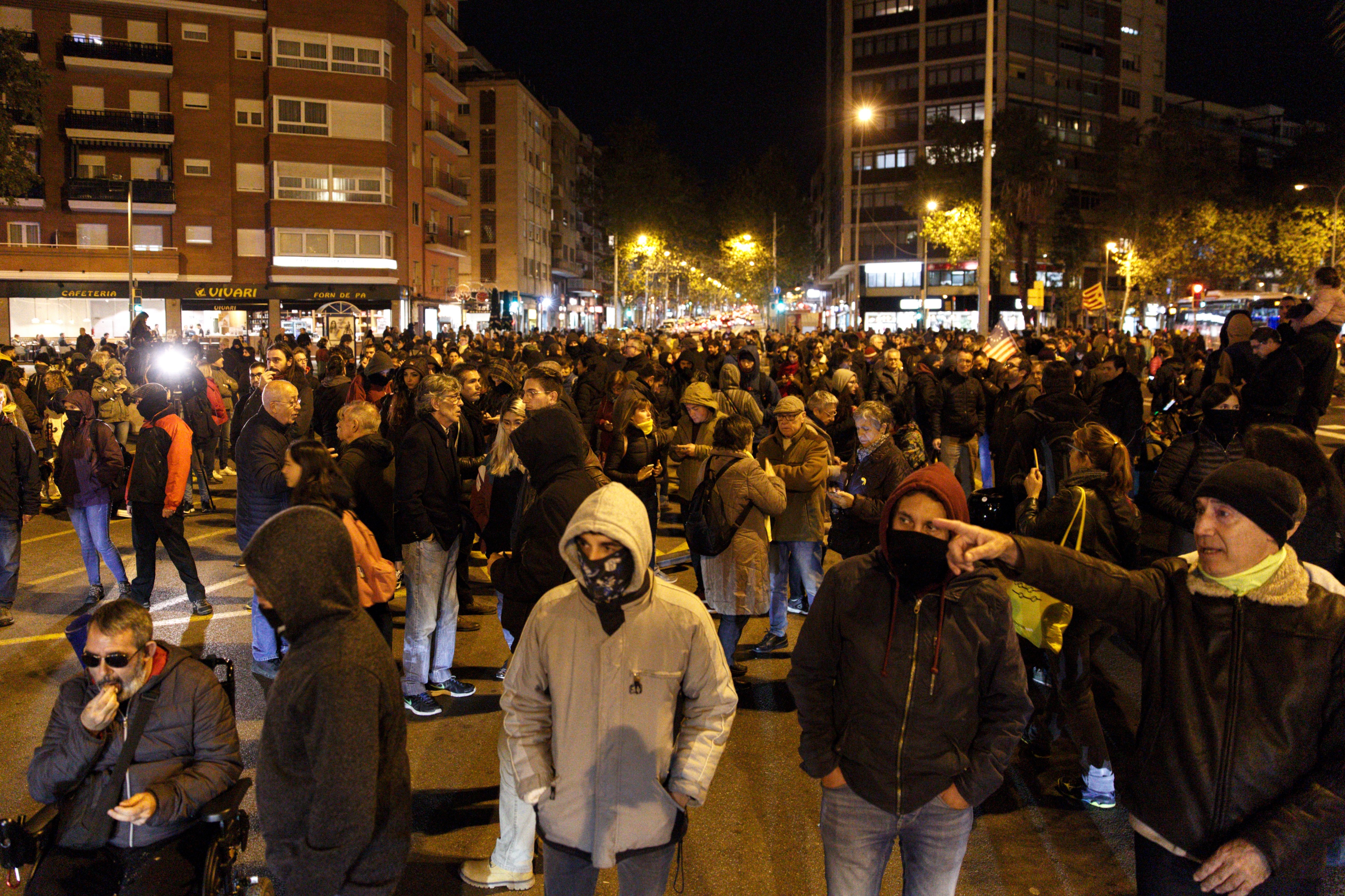A Barcelona criminal court has sentenced a young man to 18 months in prison for assault in relation to an incident in the long-running nightly protests in Barcelona's Avinguda Meridiana against the jailing of the Catalan pro-independence leaders. The man was arrested during a police dispersal of protesters who were endeavouring to block the major city artery, as they did every night for months, on October 19th, 2019. On a second offence of causing injury, he was fined 360 euros and must also pay 1,350 euros in compensation to a Mossos police officer who suffered an injury to a finger.
The judge accepted the version of two Mossos d'Esquadra officers who stated that the reason one of them fell to the ground was because the accused had pushed him. According to the facts reported in the court's ruling, a group of protesters intending to block Avinguda Meridiana attracted the attention of the Mossos, as they had broken the police cordon. One of the police officers held one of the people to prevent him from occupying the roadway and, at that moment, the accused, in an attempt to make him release his companion, pushed the police corporal in the back, causing him to "hit the fourth finger of his right hand very hard" when he fell.
"As a result of these events, the officer was injured in the fourth finger of his right hand with partial limitation of flexo-extension with edema." It took "10 days to heal", preventing him from "engaging in his usual occupations", and leaving hims with pains in the little finger as a result, according to the sentence. As well, the injured officer explained that once on the ground the defendant continued to "reprimand" him and that the blow "was direct and voluntary."
Witnesses contradicted the victim's version and reported that the Mosso fell due to pressure from people, during a more general struggle.
The defendant testified that they were only blocking the Avinguda Meridiana when the traffic lights turned red. And that on one occasion he heard screaming and saw a struggle and suddenly found himself on the ground with one of the Mossos police. He did not hit the policeman voluntarily, he said, and did not see how the officer was afterwards because he had been arrested.
But the judge did not believe him and accepted the police version. The judge also states throughout her ruling that the defendant only agreed to answer the questions of his own lawyer, a right that every defendant has. The court decision also notes that, being a defendant, he was not obliged to tell the truth, insinuating that he lied in his own account of the events that were the focus of the trial.

